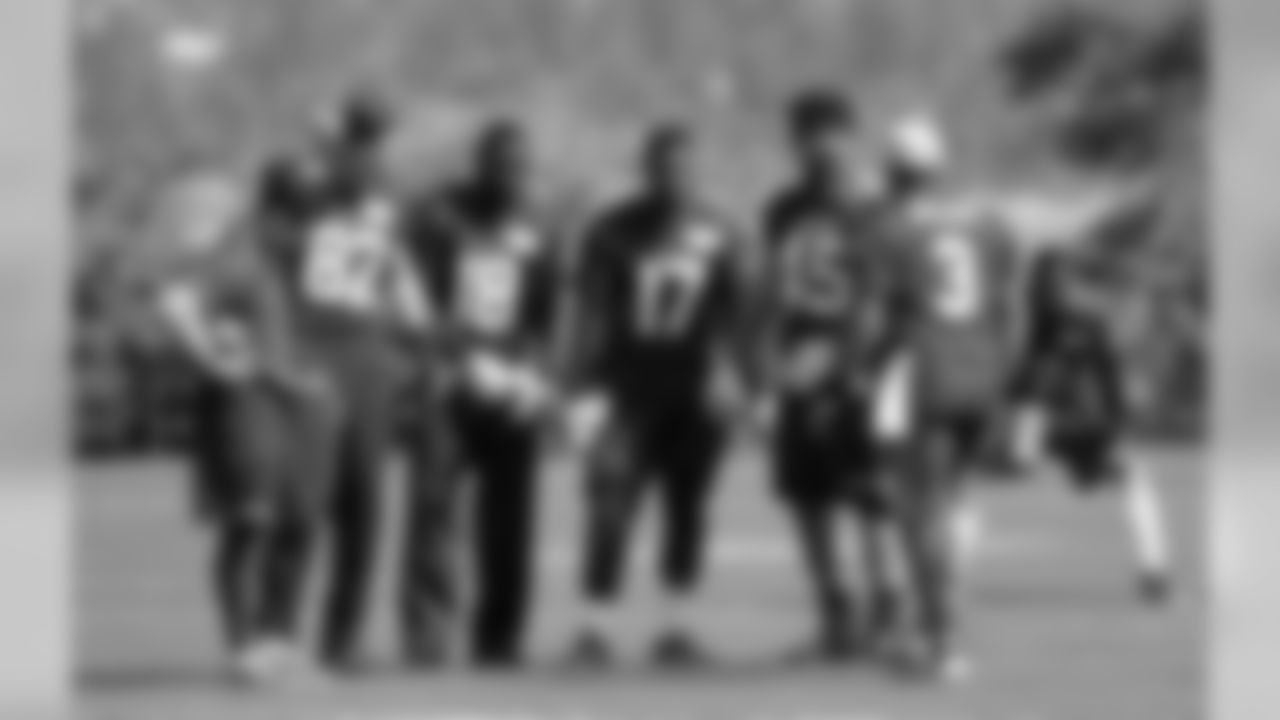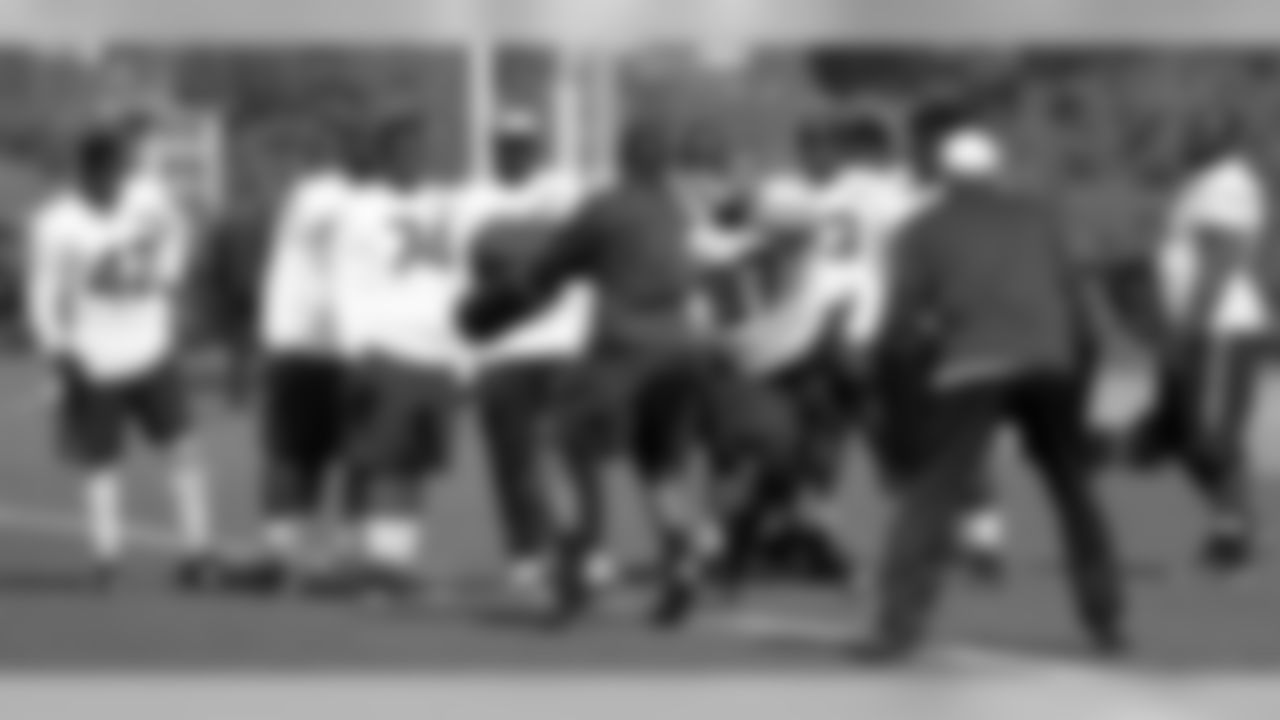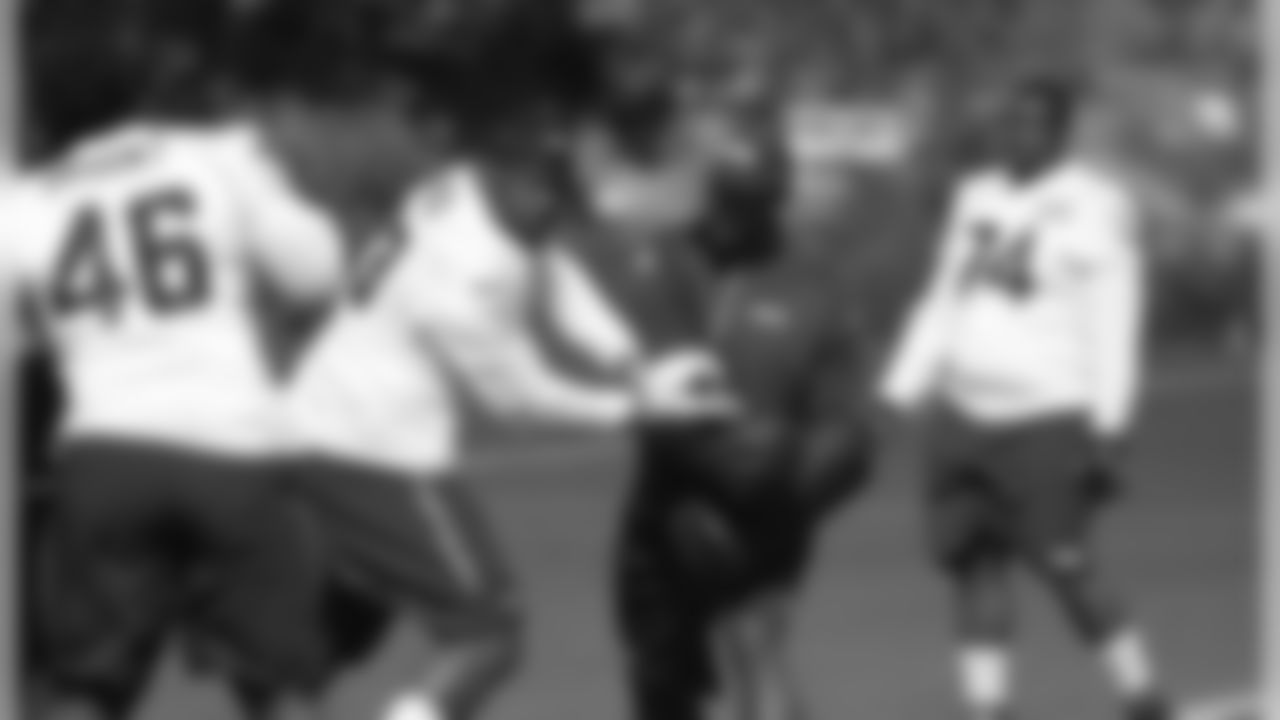Seahawks coach Pete Carroll was recently a guest on Dr. Michael Gervais' “Finding Mastery” podcast, a 45-minute conversation that looked into Carroll's philosophies, what motivates him, his biggest disappointments and more. You can listen to the whole thing below, and it's worth your time, but here are some highlights that stood out.
1. "Frustrating" high school years helped motivate Carroll.
Right off the bat, Gervais asks Carroll what people or events early in life shaped the person and coach he is now, and Carroll pointed to his teenage years when his view of the athlete he should be and the athlete he actually was didn't always line up.
"Really, what happened to me is that when I was a little kid, I was a pretty good athlete, and I could do pretty much anything, but I didn't grow like everybody else grew when I got to high school," Carroll said. "… All of a sudden in ninth grade, I was a dink."
Carroll explained that he had to get special permission to play freshman football because he was so undersized, and said, "My high school years were really frustrating to me, particularly athletically. I felt like I was somebody totally different on the inside than what I was able to show on the outside."
Carroll eventually became a star athlete at Redwood High School went on to become an all-conference safety at University of the Pacific, but that experience of not being able to perform at the level he believed he was capable of drove him.
"Everything was really guided by… I wasn't able to demonstrate the athletic ability that I had inside my head and knew I was capable of, so I developed an enormous chip on my shoulder that I had something to prove," Carroll said. "I've been different ever sense then. It was so frustrating to me because I felt like two different people. I think that's what changed things, I was always competitive and always battling, having fun, but my mentality changed, because I wasn't able to show it and I couldn't wait to just let it out. Finally I had a really productive time in college playing football and it worked out great, I wound up being the captain and we had a good team. It wasn't quite good enough to get in the NFL, but up until that point, it was just waiting to bust out, and that's never left me since. It's been the competitive makeup that's carried me all the way through this time; it has just become me."
2. The focus in on the present, not results.
It would be easy to assume that a football coach, especially one who has won as many games as Carroll has in his career, would obsess over wins and losses, but Carroll is rarely focused on the final score. Instead, by focusing on the task at hand, whether that's a specific play in a game, or a single possession, or a practice in a June minicamp, Carroll's teams are able to perform at their best, which more often than not has produced positive results.
"It's really enjoying being present and being right there right now and maximizing the fun and the good things that are about to happen," Carroll said. "Even when it's not going well, I'm of the mentality that it's going to turn.
"When we're at our best, there isn't a future and there isn't a past, you're just there in the moment. … I think it's a way of life, to tell you the truth. It is about being mindful and being present and maxing out and giving everything you have to the opportunity that's right at hand."
"It's why we don't have to talk about winning—we need to talk about performing at our best, understanding that when we perform at our best collectively, we're really hard to beat. We've proven that for years now… The winning/losing thing, the end result, you can't focus on that. If you focus on that, you're missing all the things that are happening in the meantime. If you believe and trust in that, the outcome will turn out the way you want it to."
3. Carroll's optimistic nature comes from his mother.
As Carroll said himself, even when things are going poorly for his team, he believes things are about to turn around. That isn't just Carroll trying to keep from getting down during a football, it's the way he lives his life, and he firmly believes that if he can get a football team to play with that belief, that team can create its own reality. In other words, if players believe good things are going to happen, those good things are more likely to happen. This isn't an attitude that Carroll discover as a football coach, but rather one he inherited from his mom.
"My mom really was a positive influence," Carroll said. "She was the one—I don't know where it came from or why she did this—but she instilled in me that something good is about to happen, and that all became part of this optimism that is a big deal in our program, it's a big deal in our approach, and we don't want to be any other way."
That mentality is why Carroll isn't the kind of coach who is going to tell Jimmy Graham not to fly stunt planes, or tell Russell Okung not to go running with the bulls in Pamplona, Spain.
"I don't think something bad is going to happen, I don't think things are going to go wrong," he said. "I'm on the other end of the spectrum from the guys who are being highly protective… I think you're going to gain from it, you're going to be bigger and smarter and broader and wiser because of the things you indulge in.
"The old phrase about creating your own reality, that's important to me. I believe in that and I'm going to go down thinking that. When we came to Seattle, I didn't think we would falter, I thought we would create a monstrous program. I thought that would happen. We were going to do it exactly the same way and show we could do it in the NFL, and it has just happened before our eyes. I think we've created a great program here, and we're on our way. Some day we might look back and say, 'This was a heck of a run.' But I think if we'd have thought anything else—there were people that told me when I went to USC, 'Oh, it's not like it used to be. There's the Oregons and the Washingtons and they've taken over the Pac-10, and it'll never be the same. There was the heyday.' Let's wait and see, I don't want to think that way. I just believe in this power so much, and of course you have to be optimistic."
4. Fun and discipline can coexist in football.
Dating back to his first NFL head coaching job with the New York Jets, Carroll has been described as a "player's coach" with that term often being used in a derogatory way. But what became clear as Carroll's teams at USC and now in Seattle continue to win is that football teams can have fun, be disciplined and win football games.
"I think it's hard for people to imagine that a football coach on this level can have so much fun and can enjoy it and live in the positive end of the spectrum," Carroll said. "People are so used to the authoritarian, task-master, coercive approach that's classically military, classic in sports and in leadership—and that's a great way to lead; it's just not our way to do it. It just looks different, so there must be something wrong with it. They don't take us seriously, in a sense, when I think we're as disciplined, as strict, as demanding—we maintain the highest standard that we can create for our guys and make them live up to it day after day after day—it just doesn't look or feel the same when you watch it or participate in it. I think our players will attest to that. They like what we do, they like being here, they like being part of the program… (Critics) don't get it. I don't really care.
"We've had a blast doing it. If we're not having fun, I'm screwing it up. That's just been a guideline forever."
5. Carroll discovered elements of his philosophy early, but not everyone was on board.
As one of three football coaches to win both an NCAA and Super Bowl title, Carroll has more than earned the right to do things his own way, even if it doesn't fit everyone's views of how a football team should be run. But early in his career when he was a graduate assistant at Pacific, his ideas weren't embraced by his boss. It was the moment when Carroll clearly realized he didn't see things the same way as a lot of football people, and it was also a moment that led to a stern talking to from his head coach.
"I have one precise moment when it really made sense," Carroll said, describing a meeting with his defensive backs in which he sought their input. "We had a great discussion. I was filling up the board with all their wishes… It was the best meeting I'd ever had—energized, pumped up. So the meeting's over, I run back to the office, so fired up, and I run into Chester Caddas, our head coach, a longtime defensive line guy, old school as you can get. I tell him, 'Coach, I had the best meeting I've ever had…' He said, 'You don't ever do that, you don't ever ask your players what they want to work on. You tell them, you're the coach. I don't want you to ever do that again.' And I just was crushed, because I loved my coach and I wanted to please him. Then I thought later, 'Well. maybe he didn't get it, because this was really a good thing.'
"I've never been the same since, really. I realized that connecting with people and helping them take part and be part of what they're involved in can draw them in in a way that you can take you places you can't get to otherwise."
And it isn't that Carroll seeks ideas from his players or tries to create a fun environment just because he wants his players to have a good time; he does it because it helps his teams succeed.
"Our job is to help people be the best that they can be. What can I do, how can I facilitate someone finding their very best?" Carroll said. "Whether it's a coach or administrator or players, That's the whole focus and direction of our work… If you really do believe that and you're going to compete like we do to do that, then you never rest. That means to help somebody find their best, I need to figure them out. What do they need that they don't even know they need?
"I want to see guys in every situation I can get them in so that they'll give me more information. We should be flooded with input for who they are, what they are. We say to our guys that everything counts. They're telling us something with everything they do, how they dress, the music they listen to, who they hang out with, how they eat, are they disciplined, do they take notes, everything, if you pay attention, if you're a great observer. Those are the inroads to understanding how to best figure a person out, so it has to be relationship based."
For Carroll, the flip side of investing so heavily in helping players be the best that they can be is that it stays with him a long time when individuals or teams fall short of that. The most obvious example of that came last season when the Seahawks weren't able to bounce back as quickly as they would have liked from the previous season's Super Bowl loss.
"One of my biggest disappointments was not finding the right language, the right presentation, the right mentality to share with people to get them back on course," Carroll said. "To see them have to suffer and grieve over a loss or an outcome that's going to affect what is happening next, I really take that personally and it bothers me, because I hate to see people suffering through their inability to move ahead and let things go. I get it, I understand it, everyone's different and unique, and I respect that tremendously, but it still pains me to see people not able to move on and capture the next set of opportunities coming their way based on the outcome that happened before. One of the great illustrations is the Super Bowl we lost."
The Seahawks are in the final week of 'Phase Two' of the voluntary offseason workout program, when on-field workouts include individual player instruction and drills as well as team practice conducted on a 'separates' basis.




























